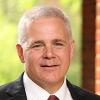Craig H. Benson

About
My practice in geoenvironmental engineering fits in four broad categories: (i) design and assessment of environmental containment systems for municipal, mining, radioactive, and hazardous wastes, (ii) sustainability assessment of engineering systems, (ii) recycling/upcycling of waste materials, and (iv) reuse of industrial byproducts for sustainable construction. In each of these areas, we emphasize a full range of study from basic theory to practice and address energy and mass transfer issues. Our research includes fundamental laboratory studies, development of computer models, and practical field demonstration of new technologies. In many cases, our research findings are validated at full-scale at operating facilities or in infrastructure in collaboration with industry and/or government agencies.
My expertise falls broadly in the discipline referred to as geoenvironmental engineering. This discipline is at the interface of the built and natural environments, and deals with issues in the subsurface or interactions between conditions at the earth’s surface and the subsurface. In most cases, the important objectives are protecting soil and ground water or designing engineering systems that prevent contamination, reduce emissions, or save energy. Achieving these objectives requires knowledge of the mechanisms controlling energy and mass transfer in the subsurface and development of creative approaches to control the rate at which energy and/or mass is transferred. These principles are applied to containing wastes to prevent groundwater contamination and atmospheric pollution, controlling contaminant migration in the unsaturated zone and ground water, managing the movement of heat and water in near-surface soils, and assessing energy usage and emissions associated with geological engineering structures at the interface of the earth’s surface.
Education
BSCE Lehigh University, 1985
MSE University of Texas at Austin, 1987
PhD University of Texas at Austin, 1989
Environmental engineers are the environmental gatekeepers. We manage the interface between the industrial and natural worlds to ensure quality of life for all, today and in the future.
Research Interests
Selected Publications
TIAN, K., BENSON, C., AND TINJUM, J.